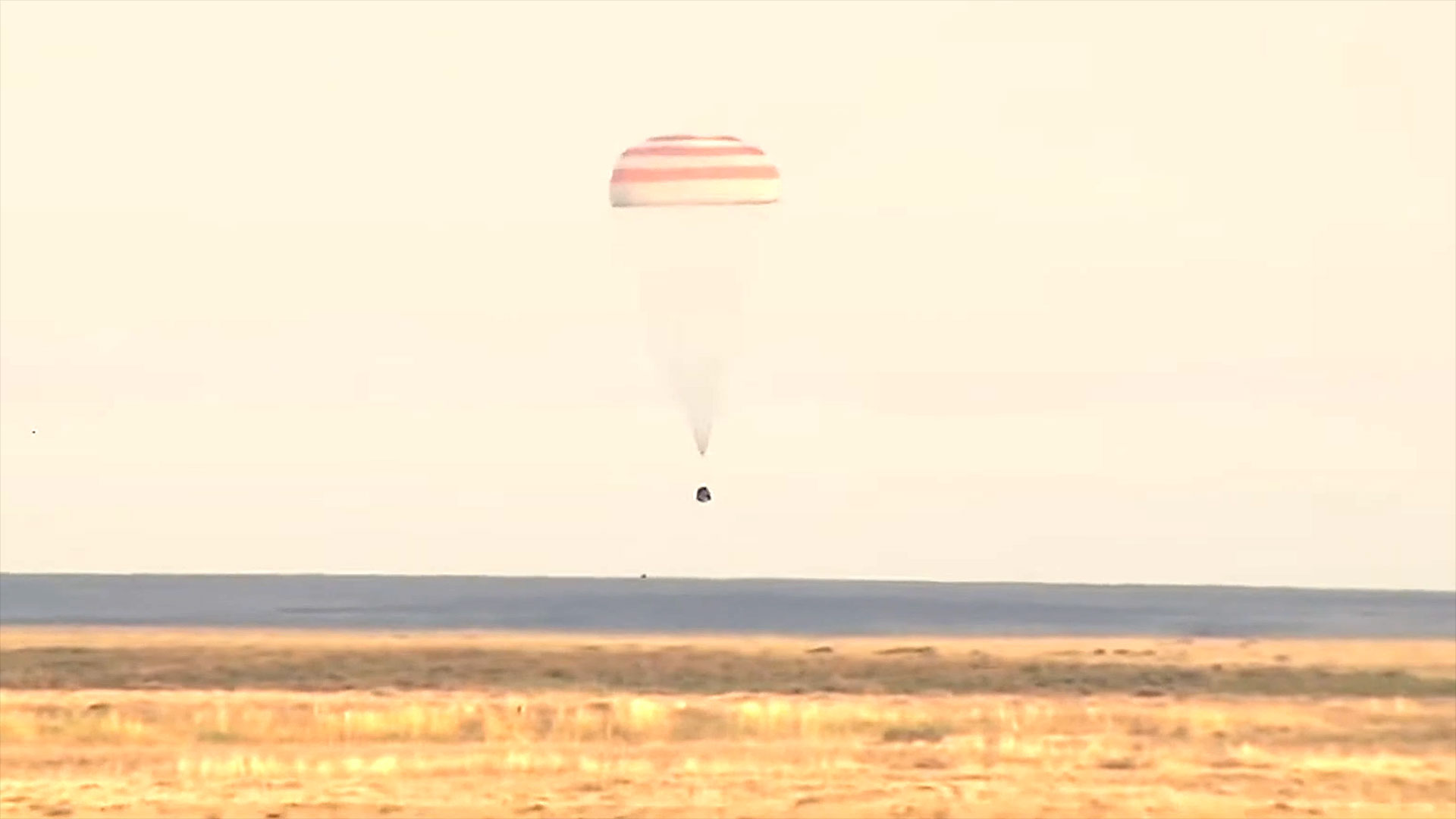Boeing's 1st Starliner Spacecraft Test Launch Delayed to Dec. 19
It's a two-day delay for Starliner's debut.

Boeing has pushed back the launch debut of its Starliner spacecraft to Dec. 19, a two-day delay, due to a glitch with the spacecraft's Atlas V rocket.
The uncrewed Starliner test flight, which will launch the Boeing capsule's first round trip to the International Space Station, will now launch no earlier than Thursdays, Dec. 19, at 6:59 a.m. EST (1159 GMT). The 48-hour delay will allow engineers to address a "purge air supply" issue on the Atlas V rocket built for the mission by the United Launch Alliance (ULA), a joint venture by Boeing and Lockheed Martin.
"Both the rocket and the spacecraft are healthy and moving through standard pre-launch processing," Boeing representatives wrote in an update on Twitter.
Related: In Photos: Boeing's Starliner Pad Abort Test Launch
Boeing's Starliner space capsule is designed to launch astronauts to and from the International Space Station under a commercial crew contract with NASA. The spacecraft will launch at least four astronauts to the space station for a long-duration mission and return them to Earth, using parachutes and airbags to land in California's Mojave Desert.
On Nov. 21, Boeing unveiled its first Starliner spacecraft, attaching it to the Atlas V rocket that will launch it to the International Space Station later this month on the Orbital Flight Test, or OFT, test flight. The uncrewed test flight "will provide valuable data on the end-to-end performance of the Atlas V rocket, Starliner spacecraft and ground systems, as well as in-orbit, docking and landing operations," NASA officials have said.
Related: How Much NASA Is Paying Per Seat on SpaceX's Crew Dragon & Boeing's Starliner
Get the Space.com Newsletter
Breaking space news, the latest updates on rocket launches, skywatching events and more!
Earlier in November, Boeing successfully launched a pad abort test flight to check Starliner's escape system designed to pull the spacecraft free of its rocket in an emergency.
Boeing is one of two U.S. companies with NASA contracts to fly American astronauts to space on private spacecraft. The other company is SpaceX, which successfully launched its first uncrewed Crew Dragon test flight to the space station in March of this year. SpaceX is also expected to launch an in-flight abort system test flight later this month.
NASA currently expected Boeing and SpaceX to begin flying astronauts to space in 2020. That will be a major turning point for NASA, which has been dependent on Russia's Soyuz spacecraft for crew launches since the agency's space shuttle fleet was retired in 2011.
Earlier in November, Boeing successfully launched a pad abort test flight to check Starliner's escape system designed to pull the spacecraft free of its rocket in an emergency.
Boeing is one of two U.S. companies with NASA contracts to fly American astronauts to space on private spacecraft. The other company is SpaceX, which successfully launched its first uncrewed Crew Dragon test flight to the space station in March of this year. SpaceX is also expected to launch an in-flight abort system test flight later this month.
NASA currently expected Boeing and SpaceX to begin flying astronauts to space in 2020. That will be a major turning point for NASA, which has been dependent on Russia's Soyuz spacecraft for crew launches since the agency's space shuttle fleet was retired in 2011.
- Photo Tour: Inside Boeing's CST-100 Starliner Spaceship Hangar
- Boeing Unveils New Spacesuits for Starliner Astronaut Taxi (Photos)
- Photos: Meet the 'Boeing Blue' Spacesuit for Starliner Capsule
Email Tariq Malik at tmalik@space.com or follow him @tariqjmalik. Follow us @Spacedotcom and Facebook.

Join our Space Forums to keep talking space on the latest missions, night sky and more! And if you have a news tip, correction or comment, let us know at: community@space.com.

Tariq is the Editor-in-Chief of Space.com and joined the team in 2001, first as an intern and staff writer, and later as an editor. He covers human spaceflight, exploration and space science, as well as skywatching and entertainment. He became Space.com's Managing Editor in 2009 and Editor-in-Chief in 2019. Before joining Space.com, Tariq was a staff reporter for The Los Angeles Times covering education and city beats in La Habra, Fullerton and Huntington Beach. In October 2022, Tariq received the Harry Kolcum Award for excellence in space reporting from the National Space Club Florida Committee. He is also an Eagle Scout (yes, he has the Space Exploration merit badge) and went to Space Camp four times as a kid and a fifth time as an adult. He has journalism degrees from the University of Southern California and New York University. You can find Tariq at Space.com and as the co-host to the This Week In Space podcast with space historian Rod Pyle on the TWiT network. To see his latest project, you can follow Tariq on Twitter @tariqjmalik.









